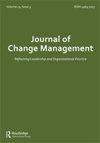中层管理者实施战略变革的战略实践
IF 2.1
Q2 MANAGEMENT
引用次数: 0
摘要
高等教育部门的战略性组织变革成本高昂,资源密集,但被认为对该部门组织的寿命和可行性至关重要。面对政府拨款的重大改革,以及来自国际化、数字化和全球化的压力,许多高等教育机构不得不重新考虑治理、组织结构以及参与者的角色和责任。本实证定性研究的目的是调查职业中层管理人员的战略实践对战略变革的影响。本研究的背景是南非一所高等教育机构,由于机构结构调整,正在进行重大的组织变革。解释性现象学分析用于描述参与者的认知、情感和身体性质,证实了六种整体和全面的战略实践,即适应、影响变革、合作、动员、维持和平和监督。研究结果证实,战略实践不仅是行动的结果,而且还受到认知、理性和情感经验的影响。变革对每个人来说都是困难的,对中层管理者来说更是如此,他们不仅是战略的实施者,也是变革的接受者。调查结果提供了对中层管理者如何处理变更环境的洞察,其中变更是多重和重叠的。本文章由计算机程序翻译,如有差异,请以英文原文为准。
Middle Managers’ Strategising Practices to Effect Strategic Change
ABSTRACT Strategic organizational changes in the higher education sector are costly and resource intensive but considered crucial for the longevity and feasibility of organizations in this sector. Faced with major reforms of government-imposed funding, pressures from internationalization, digitalization and globalization, many Higher Educational Institutions had to reconsider governance, organizational structures and the roles and responsibilities of actors. The purpose of the empirical qualitative research study was to investigate the professional middle managers’ strategising practices to effect strategic change. The study context was a South African higher education institution undergoing substantial organizational change due to an institutional restructuring. An interpretative phenomenological analysis was used to describe participants’ cognitive, emotional, and physical nature which confirmed six holistic and comprehensive strategising practices namely adapting, effecting change, collaborating, mobilizing, peacekeeping and overseeing. The findings confirmed that strategising practices were not the result of actions only but were also influenced by cognitive, rational, and emotional experiences. MAD statement Change is difficult for everyone, but even more so for middle managers who are not only strategy implementors but also recipients of change. Findings provide insight to how middle managers handle change contexts in which changes are multiple and overlapping.
求助全文
通过发布文献求助,成功后即可免费获取论文全文。
去求助
来源期刊

JOURNAL OF CHANGE MANAGEMENT
MANAGEMENT-
CiteScore
6.60
自引率
20.00%
发文量
14
期刊介绍:
Journal of Change Management is a multidisciplinary and international forum for critical, mainstream and alternative contributions - focusing as much on psychology, ethics, culture and behaviour as on structure and process. JCM is a platform for open and challenging dialogue and a thorough critique of established as well as alternative practices. JCM is aiming to provide all authors with a first decision within six weeks of submission.
 求助内容:
求助内容: 应助结果提醒方式:
应助结果提醒方式:


